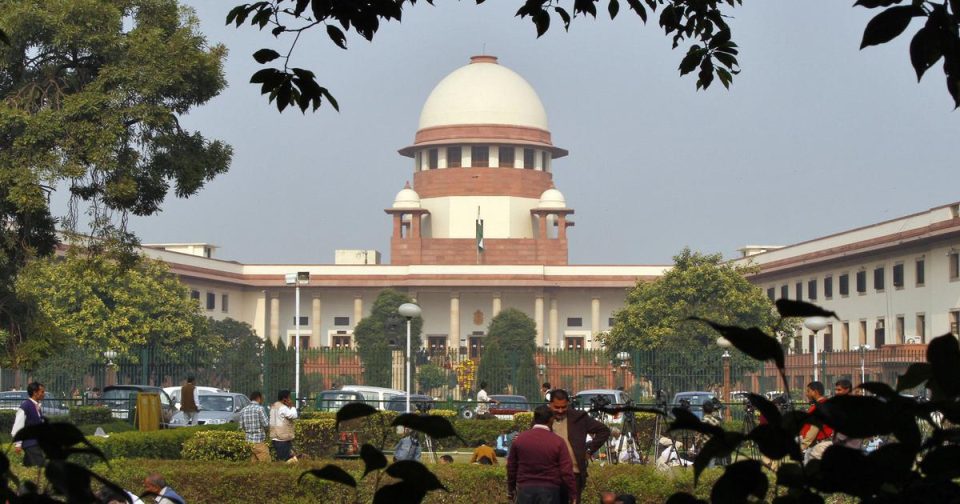The Supreme Court on Wednesday gave the Securities and Exchange Board of India (SEBI) until August 14 to complete its probe into allegations of stock price manipulation by Adani Group.
The bench headed by Chief Justice D Y Chandrachud also directed SEBI to submit an updated status report on the investigation.
The bench also included Justices PS Narasimha and JB Pardiwala who directed that a copy of a report recently submitted by the Supreme Court-appointed Judge A M Sapre Commission be made available to the parties so that they can assist the Supreme Court in this matter.
It has listed the matter for a further hearing on July 11.
“SEBI is allowed to extend the time for filing the report until August 14, 2023,” the bench said.
It is the role of the Sapre team to conduct a comprehensive assessment of the situation, including the relevant factors that have contributed to the recent volatility in the securities markets.
The court said the panel was asked to recommend measures to “(i) strengthen the statutory and/or regulatory framework, and (ii) ensure compliance with the existing investor protection framework”.
The market watchdog had sought a six-month extension to complete its investigation into allegations of stock price manipulation by Adani Group.
Solicitor General Tushar Mehta, who appeared on behalf of SEBI, told the bench the regulator had taken a realistic view on the matter, “compressed” the six-month deadline and urged it to reconsider the August deadline.
“You told us what you did because we’ve given you two months. We have now given you a further extension of three months, and now it is five months. So, what you are actually asking for is six months. We have given you five months,” CJI said.
“We will not extend the time indefinitely. If there are real difficulties, please let us know,” Judge Chandrachud told Mehta.
Mehta asked if the time to conclude the investigation could be extended until the end of September.
“Mr solicitor, we have two options. We can give you time now until September 30. Or, you tell us on the affidavit what the position is by August 15. We have not dealt with each issue, but we have said that you will provide us with an updated status report on the investigation process,” CJI said.
On May 15, SEBI told the Supreme Court that it had not investigated Adani Group since 2016, calling such allegations “baseless”.
It had said the investigation cited in its earlier affidavit involved the issuance of global depositary receipts (GDRs) by 51 Indian companies, none of which were listed by Adani Group.
On May 12, lawyer Prashant Bhushan, who appeared for one of the petitioners, objected to the request for an extension of time, saying SEBI had been conducting some kind of investigation into the matter since 2016.
The new affidavit filed with the court said that the extension application by SEBI was aimed at ensuring “the fairness of justice, bearing in mind the interest of investors and the securities market” as any incorrect or premature conclusions of the case were made in the absence of record. All the facts and materials presented in this document are not conducive to the achievement of justice and are therefore not legally tenable.
It had said that the “investigation” referred to in its earlier response affidavit “has no relation and/or connection to the issues mentioned and/or raised by the Hindenburg report.”
Sebi in its affidavit had said that it has already approached 11 foreign regulators under the Multilateral Memorandum of Understanding (MMOU) with the International Organization of Securities Commissions (IOSCO) regarding the examination of minimum public shareholding (MPS) norms. The first such plea was made on October 6, 2020.
“Various requests for information were made to these regulators. The first request was made to overseas regulators as early as 6 October 2020. A detailed account was submitted to the expert committee composed of this Court, including the steps taken, responses received and the current status of information collection under the IOSCO MMOU,” it said.
As far as the investigation related to the 12 transactions mentioned in the Hindenburg report, it is prima facie noted that the transactions were complex and had many sub-transactions in multiple jurisdictions, the affidavit said.
It said a rigorous investigation of these transactions would require collating data or information from a variety of sources, including bank statements from multiple domestic and international banks, and financial statements of onshore and offshore entities involved in the transactions and contracts.
The Supreme Court had said on May 12 that it would consider giving SEBI another three months to complete its probe into allegations of price manipulation and regulatory disclosure lapses by the Adani group.
The Supreme Court on March 2 asked SEBI to investigate allegations against the Adani group within two months and set up a panel to consider protecting Indian investors after a damning report by US short-seller Hindenburg wiped out more than $140 billion Indian conglomerate’s market capitalisation.
It also ordered the formation of a six-member committee headed by former Supreme Court Justice A M Sapre to look into the issue.
So far, the Supreme Court has filed four PILs on the issue, involving lawyers M L Sharma and Vishal Tiwari and Congress leader Jaya Thakur.
Shares of Adani Group have been hit hard after Hindenburg Research filed a barrage of allegations against the conglomerate, including allegations of fraudulent trading and price manipulation.
Adani Group denies the allegations are lies, saying it complies with all legal and disclosure requirements.
 Live
Live

